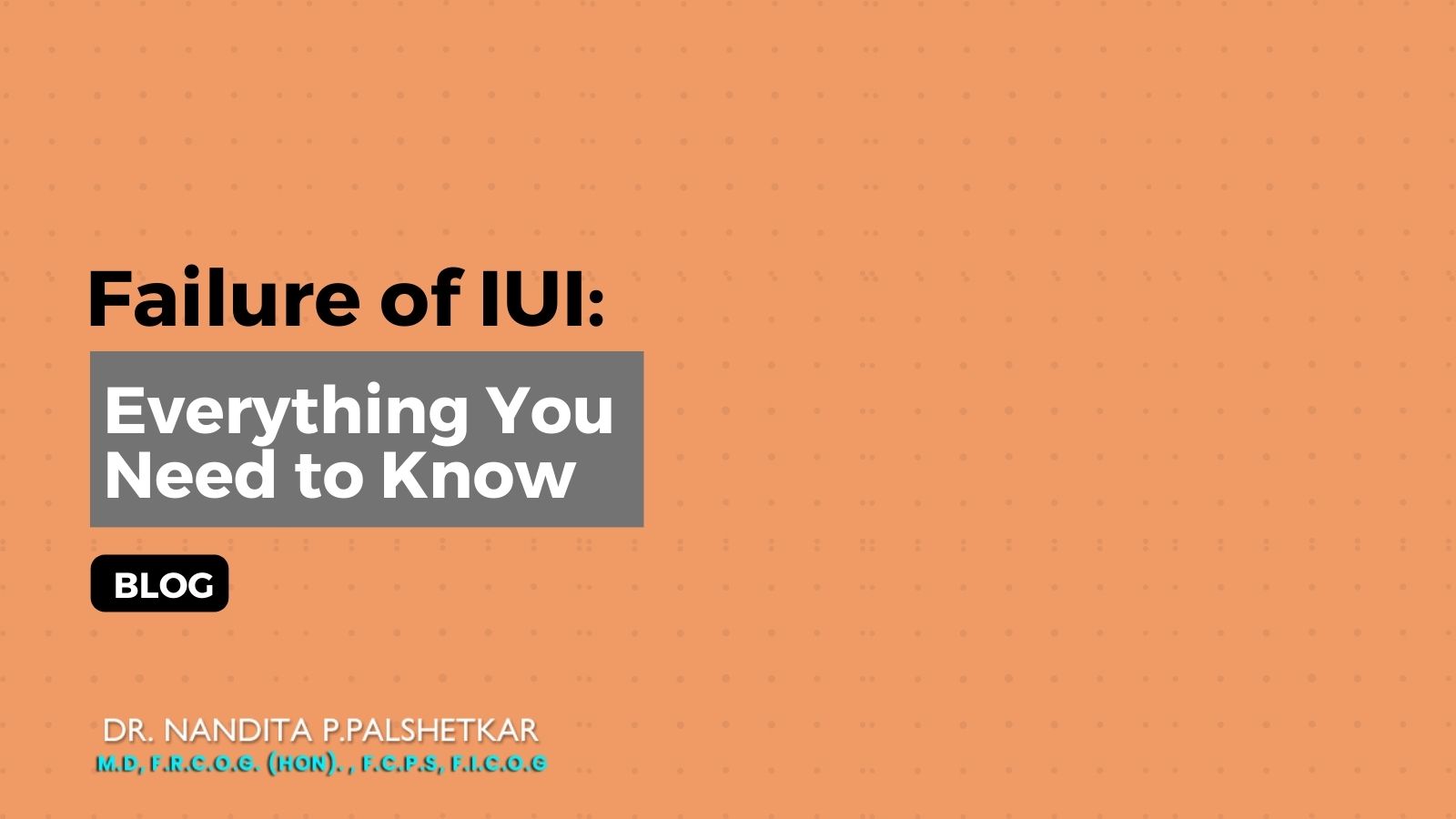Intrauterine insemination (IUI) is the primary infertility treatment of choice for couples who have been unable to conceive. IUI takes a few minutes to finish and causes little to no pain. It is preferred as the first-line treatment since it is less expensive and intrusive than other procedures.
While IUI has helped many couples, it's not a guaranteed solution for everyone. Sometimes, this procedure fails, and you can't become pregnant. Let's understand why IUI fails and the things entailing afterward.
Why Does IUI Fail?
IUI may not always result in pregnancy, and it's essential to understand that fertility treatments can have varying success rates. The factors contributing to success or failure can be complex.
Here are some common reasons why IUI may fail:
- Timing Issues: Successful IUI requires careful monitoring of your menstrual cycle to determine the optimal time for insemination.
- Ovulation Irregularities: Ovulation induction medications are often used to stimulate egg development, but the response to these medications can vary depending on your health condition.
- Sperm Quality: If the male partner has issues with sperm count, motility, or morphology, it can impact the chances of successful fertilization.
- Fallopian Tube Blockages: If there are blockages or other issues with your fallopian tubes, the egg and sperm may have difficulty meeting for fertilization.
- Uterine Abnormalities: Structural abnormalities in your uterus, such as fibroids or polyps, can reduce your chances of successful pregnancy even if fertilization occurs.
- Lifestyle Factors: Lifestyle factors, including smoking, excessive alcohol consumption, and high stress levels, can negatively affect fertility.
Symptoms of a Failed IUI
There are various symptoms of a failed IUI, such as:
- Menstruation: One of the primary signs that an IUI cycle has not resulted in pregnancy is the onset of menstruation. If you are experiencing a regular menstrual period, you are not pregnant.
- Negative Pregnancy Test: A negative result on a home pregnancy test or a blood test indicates that the IUI was unsuccessful in achieving pregnancy.
- Lack of Pregnancy Symptoms: A woman is unlikely to experience early pregnancy symptoms in the absence of pregnancy. These symptoms include breast tenderness, nausea, fatigue, and increased smell sensitivity.
- No Change in Basal Body Temperature (BBT): If there is no sustained increase in BBT, it may indicate that the IUI cycle did not result in pregnancy.
- No Change in Cervical Mucus: If there is no shift in cervical mucus consistent with early pregnancy, it may suggest a failed IUI.
What Happens After a Failed IUI?
If the IUI treatment fails, the next step may be to have an abortion to initiate a menstrual cycle and allow periods to begin. In some situations, genetic flaws or abnormalities in the quality of the eggs or sperm can lead to spontaneous abortion. Working with your healthcare provider to understand the potential consequences and build a plan for moving ahead is critical.
If you're trying to conceive, it's critical not to disregard any signs or changes in your reproductive health. To minimize disappointment from repeated failed efforts at conception, keep track of your periods and visit a gynecologist if you notice any odd vaginal discharge or discomfort in your reproductive organs.
What's the Next Step After Multiple Failed IUI Cycles?
Suppose you have a history of more than four failed IUI cycles and are above 35 with a low ovarian reserve. In that case, you must re-evaluate your treatment plan and consider other available methods. The following steps can vary based on your specific circumstances, infertility's underlying causes, and overall goals.
Here are a few steps you can take after multiple failed IUI cycles:
- Consult a fertility specialist who can review your medical history, test results, and treatment protocols.
- Consider additional diagnostic testing to gather information about potential factors contributing to IUI failure.
- Consider In-Vitro Fertilisation (IVF) treatment, which is more advanced than IUI.
- If your partner has severe infertility, ICSI (Intracytoplasmic Sperm Injection) can considerably increase the chances of conception and overcome IUI failure.
- Re-evaluate lifestyle choices that may impact fertility, such as diet, exercise, stress levels, and exposure to environmental toxins.
How IVF Doctors Help Someone with a Failed IUI?
When you experience failed IUI cycles and are considering IVF, an IVF doctor can provide guidance, conduct assessments, and manage the transition to a more advanced fertility treatment.
Here's how an IVF doctor can help someone with failed IUI:
- Provides comprehensive evaluation
- Helps to understand the underlying causes of the failed IUI
- Will answer any concerning question
- Provides a customized treatment plan
- Offers detailed explanation for IVF treatment
Increase Your IUI Success with Dr. Nandita Palshetkar
Have you come out of a failed IUI cycle and don't know what to do? If yes, then contact Dr. Nandita Palshetkar. She is one of the leading IVF doctors in Mumbai who can help you in case IUI fails. She understands the importance of personalized IUI treatment and the support you need. Book a free consultation with her today if you have any questions regarding IUI and need guidance for future endeavors.


